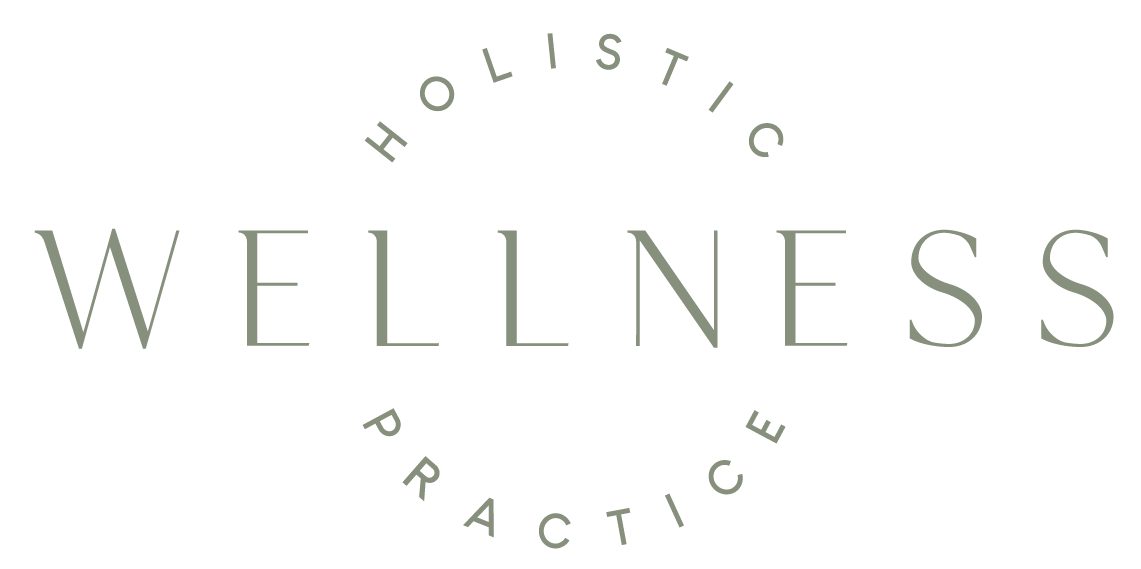No matter how well-adjusted we are in life, feeling anxious happens to us all. In truth, a certain amount of anxiety is adaptive (and healthy, even) for us. However, anxiety in its negative state chronically interrupts our quality of life and can be debilitating. According to Statistica, in 2019, the American population was more anxious than the global population, at 6.2% and 3.9%, respectively. The number of people impacted by anxiety is only growing, as that same source claims that Americans were 41% more worried in 2021 than in 2020¹.
We experience anxiety in many ways, but if there’s one thing central to the experience, it’s a sense of uncertainty. This affects our mindset (worry, hyper fixation on something we’ve done or are anticipating), our bodies (feeling on edge, symptoms of panic), our self-esteem (shaken confidence in our abilities, feeling like an imposter), and even our sense of worth (questioning “Is there something wrong with me? What does it mean about me if I’m struggling?”).
When anxiety is a part of your experience, you want answers. While you may not be able to sort out the intricacies of your specific situation without devoting time and therapeutic attention, knowing the basics about anxiety can be a balm to your questioning mind.
What is Anxiety?
Anxiety symptoms generally follow the same structure, although mental health professionals group them into specific disorders according to when the anxiety is triggered. Some anxieties are situational and short-term. Others are sudden, lasting, and cause clinically significant distress, indicating a disorder.
Generalized Anxiety Disorder (GAD)
GAD is among the most commonly diagnosed disorders in adults. Where many of the other types of anxiety (social anxiety, phobias, etc.) occur in response to specific environmental cues, people with GAD typically deal with excessive anxiety about day-to-day situations across multiple areas of life. Asking yourself these seven questions about your experience in the last two weeks with a rating of “0-Not at all, 1- Several days, 2- More than half, or 3- Nearly every day” can help determine whether this diagnosis is right for you.
- Feeling nervous, anxious, or on edge
- Not being able to stop or control worrying
- Worrying too much about different things
- Trouble relaxing
- Being so restless that it is hard to sit still
- Becoming easily annoyed or irritable
- Feeling afraid as if something awful might happen
Scoring: Scores of 5, 10, and 15 represent cutoffs for mild, moderate, and severe anxiety, respectively.
These questions are sourced from the GAD-7 Screening tool.
Panic Disorder
Panic disorder is a condition characterized by panic attacks. A panic attack refers to a surge of anxiety that typically peaks between 10 and 30 minutes. Such an attack can happen suddenly or because of an identifiable trigger. It may include physical symptoms like sweating, shortness of breath, and rapid heartbeat. Individuals with panic disorder may avoid situations they think will trigger a panic attack.
Is Anxiety the Same Thing as Stress?
If you’re dealing with anxiety that does not meet clinical levels but certainly affects your life, should it just be considered stress? Not necessarily. But what is the difference between stress and anxiety? Both are emotional responses, although stress is almost always linked to a specific trigger. For example, taking an important exam, having a deadline at work, or having to speak publicly to an audience.
The only significant difference between stress and anxiety is that stress tends to be short-lived. In contrast, anxiety is a pattern that lasts months or years and continues even in the absence of an external trigger.
An easy way to explain this is to review our body’s evolutionary reaction to stress and fear: the “fight or flight” response.
Fight or Flight Stress Response
Humans and animals have a central nervous system (CNS) that regulates chemicals in our system. When things are calm, the CNS chemicals are well-balanced. But when a crisis strikes, the CNS sends chemicals to help survival.
In this state, we’re primed to deal with the danger approaching in several ways. For example, we may need to flee a scene to attempt to save our life. Our heart rate speeds up, our muscles tighten, our resting bodily functions shut down to make room for survival functions, and we react on instinct. Our instincts may lead us to fight, flee, fix, freak out, fawn, or freeze—whatever we need to do in the moment to survive. When the moment ends, our CNS regulates itself and we return to homeostasis.
The Impact of Chronic Fight or Flight
So, what happens to our bodies when we have chronic and pervasive stress? Stress never leaves, and our body never returns to calmness. Our bodies are kicking out inflammatory chemicals all day and night. These chemicals, over time, can make us sick and are a precursor to illnesses like gastrointestinal disorders, high blood pressure, cardiac events, autoimmune diseases, and more.
What Happens to Our Body When We Are Anxious?
Stress and anxiety take a toll on your physical health due to the mind-body connection and your body’s programmed response to stress. Some of the symptoms you may experience are:
- Sleeplessness
- Stomach upset leading to loss of appetite or IBS
- Low libido
- Chest pain (always see a doctor or go to the emergency department if you have symptoms of chest pain)
- Rapid heart rate, palpitations, and increased risk of high blood pressure and heart disease
- Difficulty concentrating and headaches
- Body aches, pains, and muscle tension
- Weight gain due to long-term exposure to cortisol
- Weakened immune system
- Breathing difficulties exacerbated (Asthma or COPD)
What Medical Conditions Can Cause Stress and Anxiety?
- Gastric disorders (like IBS)
- Thyroid diagnoses
- Chronic pain
- Diabetes
- Menopause
- Withdrawal from alcohol and drugs, specifically anti-anxiety medications (benzodiazepines)
- Asthma and chronic obstructive pulmonary disease (COPD)
- A side-effect of certain medications
You can find more tips on the difference between stress and anxiety here.
The Cyclical Effects of Anxiety
To cope with anxiety, there are a number of predictable ways people may act that tend to keep us stuck and don’t actually produce relief.
Inactivity – Rather than doing something productive, we allow anxiety to take over, lazing about, feeling bad about ourselves, and leaving plenty of gaps in our daily schedule where anxiety creeps in.
Anger – As anxiety involves intense fear and insecurity, we often do all we can to transition this emotional experience into something that feels safer—anger. Whether this looks like mild irritability or fully projecting your anxiety onto others, this tends to affect our relationships and can even end up contributing to the fears that fuel our anxiety.
Avoidance – Once we’ve identified the source of our anxiety, we tend to avoid it at all costs. When we are “rewarded” by lessening our anxiety levels, the likelihood that we’ll use avoidance again in the future grows.
Alcohol/ Substances – As a more destructive version of avoidance, we often turn to external substances (food included) in order to soothe or alter our mental states. Unsurprisingly, this can affect how we feel about ourselves and keep us dependent on cognitive avoidance to dampen feelings of disappointment in our actions.
Treatment Options for Anxiety
There is good news. There are treatment options available to tamper anxiety, and many mental health therapists are well-versed in methods of healing that can restore you to a sense of calm. While this is not an exhaustive list of treatments, here are some pathways to well-being that Holistic Wellness Practice clinicians specialize in:
- Cognitive Behavioral Therapy (CBT) – By tackling common thinking errors and the triadic feeling-thinking-acting way of understanding your anxiety, you can take actionable steps towards feeling better.
- Dialectical Behavior Therapy (a form of CBT) – By bringing you back to basics and teaching skills in mindfulness, emotional regulation, distress tolerance, and interpersonal relationships,
- Psychoanalytic Therapy – By getting to the root of your anxiety and understanding its purpose in the larger story of your life, you can develop a new relationship with anxiety.
- Exposure Therapy – Perfect for working through specific phobias, this graduated method of introducing your fears can help you increase your tolerance and acceptance of them.
- Medication Management and more!
Medications Prescribed by a Doctor for Anxiety
Research has found that taking medications in combination with psychotherapy is an effective form of treatment. Common prescriptions include:
- Selective Serotonin Reuptake Inhibitors (SSRI) and Serotonin-norepinephrine reuptake Inhibitors are antidepressants, and they also work to reduce anxiety.
- Benzodiazepines are fast-acting anxiety medications. These medications are highly addictive, so if a doctor puts you on benzodiazepines, it will be for a brief period.
- Beta-blockers are medications used to treat heart conditions and lower anxiety.
Quick Coping Skills for Anxiety
Are you aware of how you typically respond to anxiety? Does it fit in one of the categories mentioned above? (Inactivity, Anger, Avoidance, Alcohol?) Overcoming anxiety involves adding coping skills and building a self-care toolbox that directly combats these tendencies in us. Here are some examples:
- Move your body. Go for a walk, practice yoga, lift weights, or clean the house.
- Get outside. If possible, walk in nature. Take your time and enjoy your surroundings. If an area to appreciate nature is unavailable, get outside and get some sun.
- Direct your attention somewhere positive. Try a distraction like reading a book or watching a favorite show on t.v. or think about something that you’re looking forward to.
- Connect with someone. Talk to your partner or ask a friend to meet for coffee. Enjoy their presence as a distraction, or talk with them about your anxiety as a way to share the burden.
- Try journaling. Putting our thoughts or feelings onto paper can create an emotional release.
- Play a musical instrument. It takes focus to play and will distract you from anxiety.
- Practice breathing. Take deep breaths in through your nose, and breathe out through pursed lips on the exhale. Breaths out should be longer than breaths in. If you’re familiar with another breathing technique that works for you, challenge yourself to practice for increasing increments of time.
While these coping techniques are incredibly helpful to bring you back to homeostasis, a long-term solution will involve discovering the root of anxiety, rather than simply learning ways to deal with it when it’s triggered. Therapeutic support can help you move from reacting to your anxiety to actively dealing with it.
Overcoming Anxiety
Often people do not know why they are chronically tense and nervous, but they know that something isn’t quite right with them. The first step in understanding the cause of your anxiety may require seeing a medical doctor or a mental health professional to determine if illness might be causing your anxious symptoms. If you’ve already taken that step, you may feel better knowing that you are prioritizing your mental health. Working with a mental health therapist will help you dive further into the cause of your anxiety and create an individualized treatment plan.
If you’re ready to start your therapy journey, schedule your free consult here.
For more resources, begin here:
- Self Care Toolbox
- 17 Common Thinking Errors: How to Identify and Replace Them
- Metta Meditation: The Benefits The Science Behind it How to Do It
References
- Elflein, J., February 10, 2020. Anxiety in the U.S. Statistics Facts. Statistica.
- Kubala, K, February 17, 2020. Everything you need to know about stress and anxiety. Healthline.
Gleyce Almeida-Farrell is a psychotherapist and the founder of Holistic Wellness Practice in Alpharetta, GA. She specializes in helping adults manage stress and overcome symptoms of anxiety utilizing a holistic and integrative approach to mental wellness.
We offer in-person and virtual services – contact us today to learn more!







